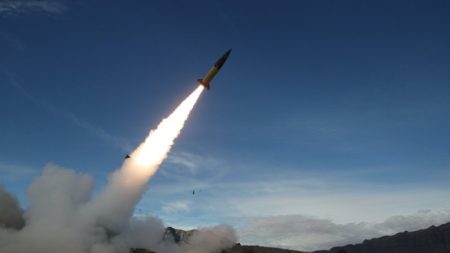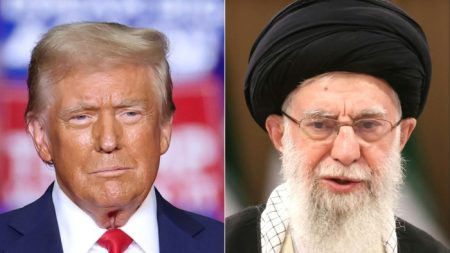Unlock the Editor’s Digest for free
Roula Khalaf, Editor of the FT, selects her favourite stories in this weekly newsletter.
Western and Arab diplomats have condemned comments by Israel’s far-right finance minister suggesting that the country will look to annex the occupied West Bank next year in the wake of Donald Trump’s re-election as US president.
Bezalel Smotrich wrote on X on Monday that 2025 would be “the year of sovereignty in Judea and Samaria”, using the Jewish biblical name favoured by Israeli nationalists for the West Bank, which Palestinians seek as the heart of a future state, but which Israel has occupied for half a century.
Josep Borrell, the EU’s foreign policy chief, slammed the proposal as a “clear step towards illegal annexation” of the West Bank, which is home to about 3mn Palestinians, as well as around 500,000 Israelis living in settlements considered illegal by most of the international community.
Borrell wrote on X that annexation would undermine international law, violate Palestinians’ rights “and threatens any prospects for a 2-state solution” to the Israeli-Palestinian conflict.
Steffen Seibert, Germany’s ambassador to Israel, said “any preparation to implement this goal is in full breach of international law”. Egypt and Qatar both condemned Smotrich’s comments, with the latter calling it “a dangerous escalation that undermines the prospects for peace in the region”.
Israel occupied the West Bank in 1967 during the Six-Day War and over the past half-century has dramatically expanded the size of Jewish settlements in the territory.
The International Court of Justice said in an advisory opinion this year that the occupation was illegal under international law and that Israel should dismantle its settlement infrastructure and “evacuate all settlers from the Occupied Palestinian Territory”.
Smotrich, an ultra-nationalist who lives in the settlement of Kedumim, has long espoused annexation of the West Bank, and — in his second role as a junior minister in the defence ministry — has wide-ranging powers over civilian affairs in the territory.
Earlier this year, he was recorded telling settlers he was quietly making changes to how the territory is run, including shifting powers from the military to civilian officials, that would allow Israel to entrench its control without being accused of annexation.
Trump’s victory has been cheered by Smotrich and settler leaders, who see it as an opportunity to advance their ambitions in the West Bank.
During his first term in office, Trump moved the US embassy from Tel Aviv to Jerusalem, recognised Israel’s annexation of the occupied Golan Heights and cut most funding to the Palestinians.
However, Trump’s 2020 “peace plan” for the Middle East, while heavily tilted towards Israeli interests, was rejected by large swaths of the Israeli settler movement, including Smotrich.
The plan allowed for all Israelis to remain in their West Bank settlements, but allocated about 70 per cent of West Bank land for a future Palestinian state.
The row over Smotrich’s comments came as the US military said it had launched strikes against nine targets linked to Iran-backed militant groups in Syria.
The strikes — the first by the US in Syria for months — were in retaliation for several attacks against American forces in the Arab state over the previous 24 hours, the US military said.
The US has about 900 troops based in Syria as part of the fight against jihadi group Isis, while Iranian forces and Iran-backed militias have been in the country for more than a decade to support the Assad regime in the Syrian civil war.
Since Hamas’s October 7 2023 attack triggered the war in Gaza and a wave of regional hostilities, Iran-backed militias have mounted multiple rocket and drone assaults against American forces deployed in Syria and Iraq.
Read the full article here













